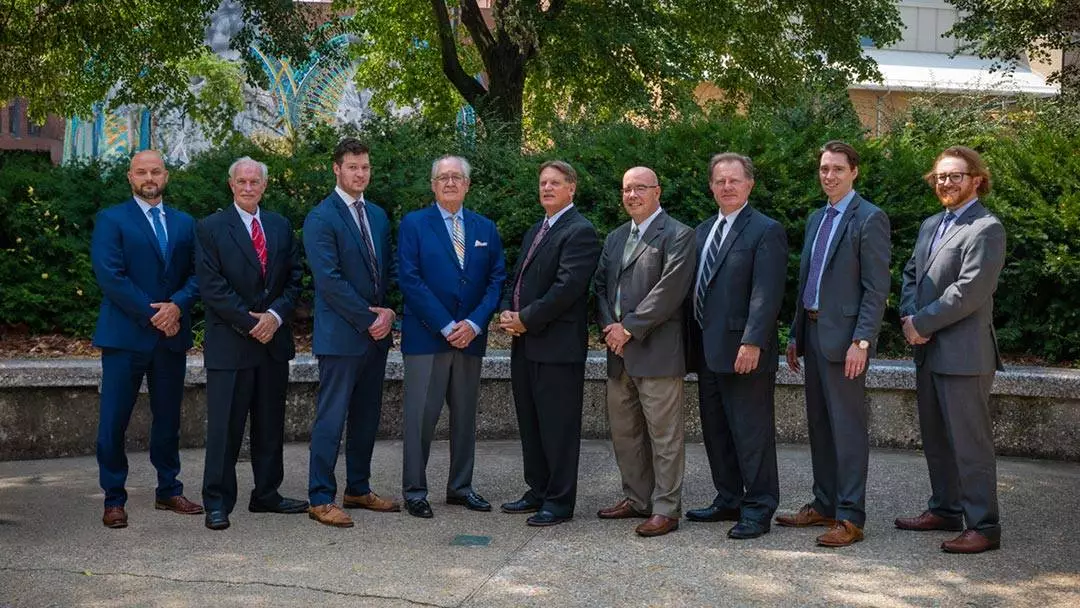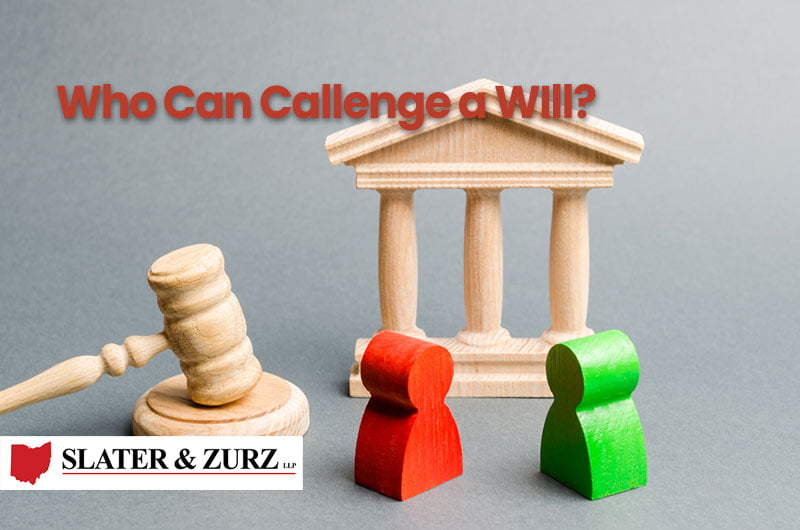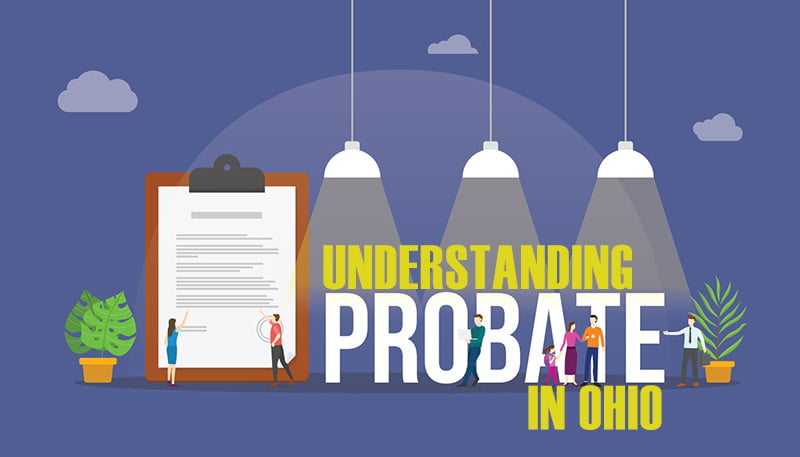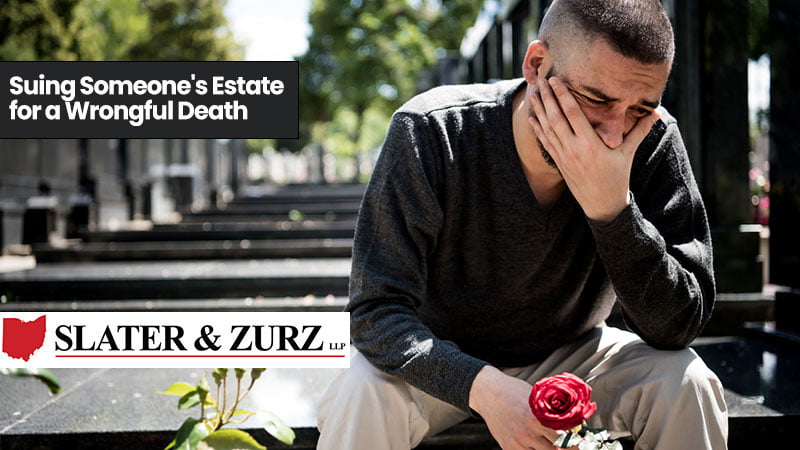Soon after your loved one passes, their belongings and assets are distributed according to their will and following the probate laws in Ohio. Unfortunately, reading the will can be contentious, especially for closely related family members or heirs who are surprised by or disagree with how the deceased’s assets are allocated.
What happens if you disagree with the terms of a family member’s will? The result is a will contest, a legal matter typically handled by a probate lawyer who understands how to determine the validity of a will. Contesting a will in Ohio can be a complicated process and not one you should undertake without an experienced estate litigation lawyer.
What You Should Know About Contesting a Will in Ohio
Everything a deceased person owns, from the contents of their bank accounts to their closet, becomes their “estate” after they die. Whether you own a little or a lot, you still have an estate, and the contents of it are legally distributed.
Many people use a probate lawyer to help them allocate their assets so that their heirs and dependants are taken care of after they die.
The process of inventorying and valuing the estate and legally disbursing it as per the terms of the will and Ohio state law is called probate. If someone dies without a will, their estate still goes through probate, but assets are allocated according to the laws in the state and how the “next of kin,” or heirs, are determined.
With a will, the probate process usually takes about six months to a year, but if the will is contested, the probate process can last much longer, and the assets remain in the estate until the matter is settled.
Ohio allows the will to be challenged, but there are limits. Only certain persons may legally challenge a will. Furthermore, there is a limited time to challenge a will, and the probate courts will often dismiss a will challenge filed after the statute of limitations has expired.
The person or persons challenging the will must meet the legal requirements and carry the burden of proof to contest it. If a person contesting the will doesn’t meet these three requirements, the probate court judges the will to remain “as is.”
Understanding the Probate Process in Ohio
Probate legally settles the estate of the deceased. A will is a legal document prepared by a probate lawyer that lists how the deceased wishes their assets and belongings to be disbursed. It names an individual to oversee the terms of the will, called the executor.
The executor represents the estate (and, by extension, the deceased), not the family and not the heirs. It’s the executor’s responsibility to make sound judgments about the estate’s contents, including paying debts and ensuring that the terms of the will are followed.
A will may also contain instructions on paying any debts the deceased owes. Even if there aren’t instructions for paying debts, creditors may file a claim in probate court against the estate to settle owed debts. The executor reviews these claims and pays valid ones.
Only after outstanding debts are paid can the estate’s assets be allocated, with few exceptions.
The probate process begins by “opening” the estate and filing an application for probate with the county court. The will is also filed with the probate application. Probate courts have jurisdiction over the estate and are the final say in any will or creditor disputes.
The complexity of probate, and the length of time it takes, are unique to each case. A contested will, or a will dispute, can be a lengthy, complicated process and one in which, if you’re the individual contesting a will, an experienced estate litigation lawyer can help you navigate the process and advise you.
Who May Contest a Will in Ohio?
Only individuals with a financial interest in the deceased’s estate have the legal right to dispute the will. As per Ohio law, these individuals are limited to:
- A legal heir omitted from the deceased’s will entirely
- Beneficiary is given a smaller share of the estate than they believe they should have
Someone who meets either of these qualifications may contest the will, but they and their estate litigation lawyer must still prove that they are entitled to the share of the estate they claim.
What Are the Grounds for Disputing a Will in Ohio?
An heir disputing the contents of the will must challenge the validity of the will itself. They cannot simply dispute a will because they want a larger share of the estate or a particular item that was bequeathed to another party.
Heirs or beneficiaries disputing a will must work within Ohio laws, which mostly deal with challenging whether the will itself is valid.
The primary bases for challenging the validity of a will in Ohio include:
- The deceased was not of sound mind when drafting the will
- The deceased created the will with undue influence from another party
- There was a procedural or legal error in the drafting of the will
The first two dispute whether the will was valid, while the third challenges whether the deceased’s probate lawyer drafted the will correctly. If you plan to challenge the will on the point of law, choose an experienced estate litigation lawyer who understands the fine points of contract and probate laws to represent your interests.
As per Ohio law O.R.S. § 5817.10, a will is considered valid if it meets these conditions:
- It was properly executed according to the Ohio statute O.R.S. § 2107.03
- The deceased was not under undue influence, had the mental capacity to dictate the terms of the will, and was not placed under compulsion or restraint.
- The will was not executed by mistake or fraudulently
These are the only grounds that an heir may dispute a will in Ohio. The deadline for filing a dispute is three months after the challenging party receives notice of the estate’s probate filing.
Choose an Experienced Ohio Probate Lawyer
Your chances of a successful will be challenged to improve with an experienced estate litigation lawyer. We can help you in this difficult time. Contact Slater & Zurz today for a free case review.






